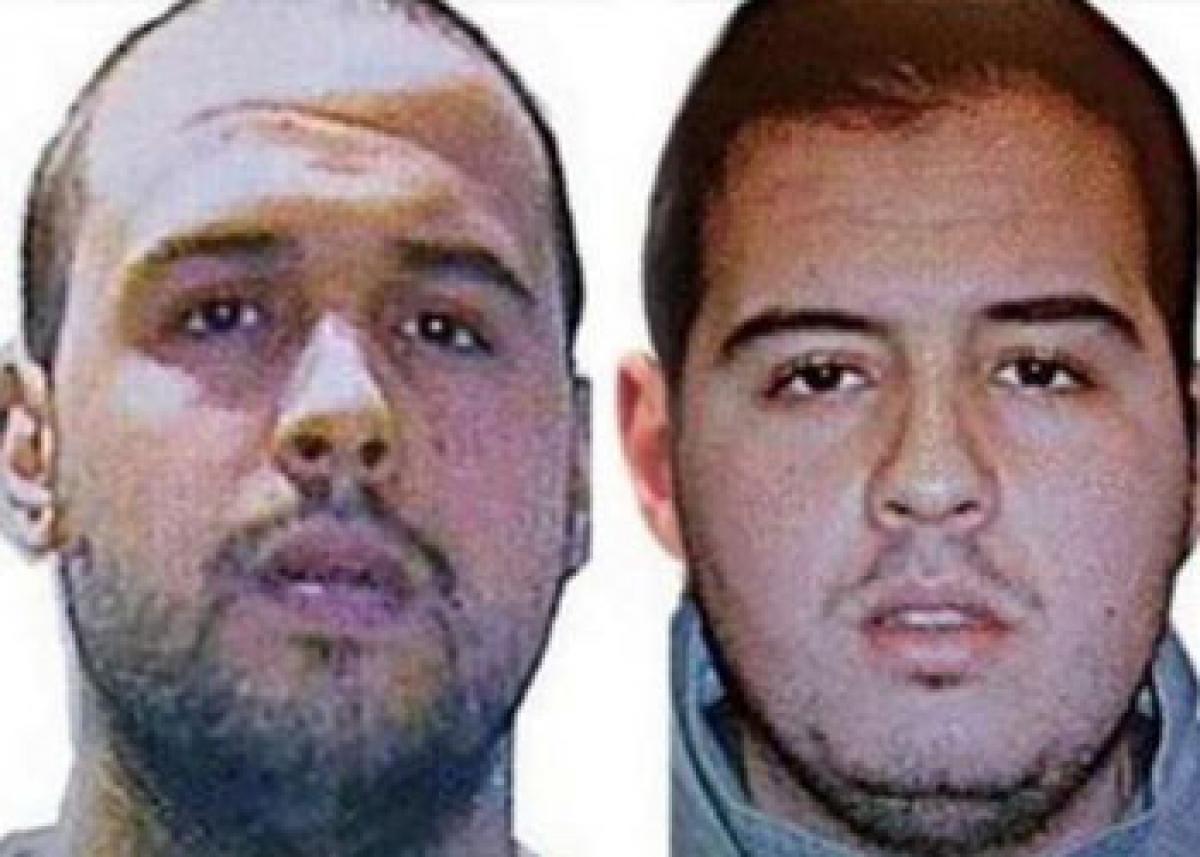Live
- GMR Airports Unveils AI-Powered Digital Twin Platform to Transform Airport Operations
- India poised to become leading maritime player: PM Modi
- Top Causes of Kidney Stones and How to Recognize Silent Symptoms
- India’s renewable energy capacity logs 14.2 pc growth at 213.7 GW
- Winter Session of Odisha Assembly adjourned sine die
- Biden calls Trump's tariff approach 'major mistake'
- After Drama Over Eknath Shinde’s Chief Minister Race, Maharashtra Cabinet Formation Faces New Tensions
- Egyptian FM, Blinken discuss recent developments in Syria
- Iran's supreme leader says Syria's developments result of US-Israeli 'plot'
- Elon Musk to Purchase $100 Million Luxury Mansion Next to Donald Trump's Mar-a-Lago, Report Reveals
Just In

The Brussels attackers included a pair of brothers, the latest in a long string of sibling duos involved in violent religious extremism -- something experts say can occur when close childhood bonds ‘spin out of control.’
Paris: The Brussels attackers included a pair of brothers, the latest in a long string of sibling duos involved in violent religious extremism -- something experts say can occur when close childhood bonds ‘spin out of control.’
"It's a completely natural phenomenon," said Marc Sageman, a psychiatrist and former CIA agent who was among the first to identify it in his 2003 book "Understanding Terror Networks".
"You develop your social identity first by talking to those close to you. And at first those close to you are of course your brothers and childhood friends," Sageman told AFP.
"It's what I call the activation of the social identity. It's a question of proximity. That's why there are so many brothers, sometimes sisters, neighbourhood friends.”
"They grow up together. They invent for themselves an identity as defenders of an Islam under attack, of women and children killed in air strikes. They radicalise and reinforce each other", he said.
Brothers Khalid and Ibrahim El Bakraoui were identified as two of the suicide bombers in Tuesday's attacks in Brussels, while other brother duos were identified in the January and November attacks in Paris last year and attacks in Toulouse in 2012.
The 2013 Boston marathon bombers were also brothers -- and no fewer than three pairs of brothers were among the 19 hijackers involved in the September 11, 2001, attacks in the United States.
"We have plenty of examples across the terrorism spectrum, of multiple kinds of terrorism in Indonesia, Northern Ireland, Middle East," said University of Massachusetts Lowell criminology professor John Horgan.
Family names by twos, threes and even fours are common on terror watch lists, especially in France and Belgium, as security officials track their travel to and from Islamic State group territory in Iraq and Syria.
To beat the tight surveillance put in place since September 11, these family dyads or triads retreat into their own small worlds.
"It's a matter of trust," Sageman said. "You confide in someone close to you, naturally. And when it's a matter of getting someone to join you, the most logical target is your little brother or your older brother. It's the same thing with street gangs. Less brainwashing and indoctrination is needed."
'Psychic confusion'
Patrick Amoyel, a psychoanalyst in the southeastern French city of Nice who works for a centre specialising in de-radicalising youths attracted to jihad, said he often comes across sibling pairs.
"The influence goes both ways," he told AFP. "They quickly lock themselves into a sort of psychic confusion. There's something a little mad, a little irrational in this process. It's risk-taking that is a bit adolescent, even if they are not always adolescents."
His colleague at the association, Amelie Boukhobza, adds: "It's often the younger one with more to prove, a place to find for himself, who influences the older one. The older one is not necessarily the dominant one."
The rest of the family is typically aware only that the brothers are close, spend a lot of time together and may lower their voices when others come within earshot.
Once the radicalised bubble forms it acquires its own internal logic and resistance to any external challenge.
"It can be enlarged to include close friends," Amoyel added. "Then you have a... consolidation that is very solid, hard to break up. We have seen it very often. And it doesn't come from mental illness."
The complicity can eventually "spin out of control" as the brothers egg each other on, he said, stoking a "desire to exceed limits, to go towards absolute rebellion. And that can end up in terrorist action."

© 2024 Hyderabad Media House Limited/The Hans India. All rights reserved. Powered by hocalwire.com







